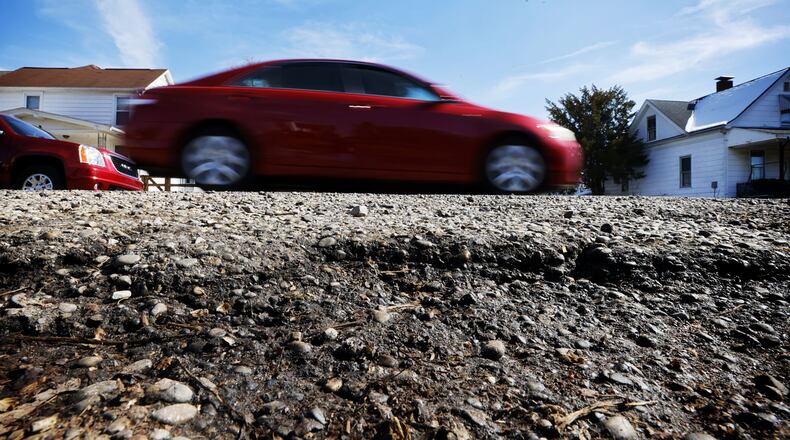The levy-funded street repairs, accompanied with the annual concrete repair and resurfacing program, will be aided with a new asphalt milling machine Hamilton will lease for five years. The matter needs council approval, which is expected to happen at its March 13 meeting, as it’s a capital lease taking on new debt. The lease will be $283,523.
Public Works Director Jim Williams believes the small investment will pay big returns: the milling machine will help Hamilton proactively address the city’s potholes on smaller neighborhood streets.
“The sooner we can get it on order, the sooner it can come to the city,” he said. “We also have a paver that is to be delivered, as well.”
Because the lead time to get machines ordered and delivered is “unbelievable,” Williams said, the hope is that the machine arrives by June and they’ll have the summer and fall months, at least until the asphalt plants close for the season, to get as many streets done as possible.
Though Hamilton City Council still needs to vote on the appropriation, the board seemed to be excited by the city continuing to address what has become a bane to many residents.
“It will bring a lot of joy,” said Mayor Pat Moeller at last week’s city council meeting. “Your vision to pave our streets using our own people and leasing some equipment to help our own people get this job done right, that’s great.”
“I think the residents are really going to be appreciative of this,” Council member Michael Ryan said. “As you know it’s a pretty high priority to get these streets fixed.”
There are several streets targeted once the city’s public works department takes possession of the milling machine. Some of the first smaller neighborhood streets include Weinmann Drive, Peregrine Way, Sandalwood Terrace, Barbary Drive, Cornell Avenue, Sunset Court, Hilda Avenue, and two sections of Cleveland Avenue (between Gray and Webster avenues).
These streets were targeted based on a set of criteria, which includes the paving condition index, underground utility conditions, 311 requests, ADA ramp costs, and cost of the asphalt, and if it’s high- or low-volume traffic roadway.
Additionally, officials take into consideration roads that the Hamilton engineering department would be addressing, such as for reclamation projects. Williams said his Public Works Department would be tackling mill and fill projects, where they take a couple of inches off the old road and replace it with new asphalt “and try to make the pavement black and smooth.”
“In essence, we’re trying to do this as quick as possible so we can get to as many streets as possible,” he said.
While there will be a warranty associated with the lease, the public works mechanics will have training on helping to maintain the equipment. Williams said the city has rented smaller pavers and millers in the past, “but something as extensive and as elaborate as this, we’ve never done before.”
About the Author

